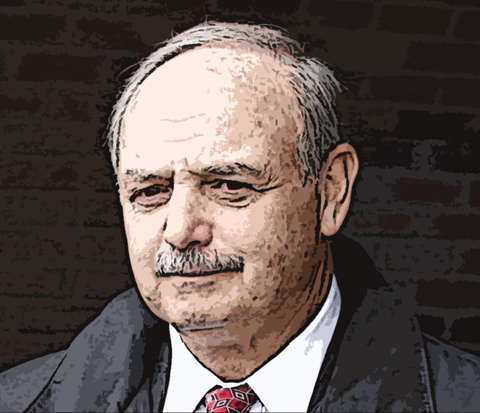
DEATH SENTENCE? DiMasi was denied medical care for months after discovering lumps in his neck. By the time he was treated, the cancer had reached stage IV. |
The March 7 Boston Globe carries a front-page story about the plight of former House Speaker Sal DiMasi. DiMasi was convicted on federal charges that in effect amounted to political corruption. In an effort to get DiMasi to testify against others, federal authorities instituted a putative enhanced transfer program for DiMasi that kept the former House Speaker shuttling between lock ups for a prolonged period and denied him early treatment for the cancer he suffers. Seven months ago attorney Harvey Silverglate wrote about the case. His commentary is republished below.
Question: what do the federal government's "war on terror" and its "war on political corruption" have in common?
Answer: torture.
America was outraged when it learned of abuses committed by enlisted personnel at Abu Ghraib. As details of waterboarding and other enhanced forms of interrogation emerged, a vigorous national debate ensued.
But when the news broke recently that Salvatore DiMasi, a former Speaker of the Massachusetts House convicted of political corruption and now serving time at a federal prison, was subjected to treatment so Borgia-like, so inhumane as to constitute a form of torture, the community mostly yawned.
There is compelling evidence that DiMasi was subjected to torture-lite in his assignment to a faraway prison in Lexington, Kentucky, there to serve his eight-year sentence, rather than at the nearby federal prison hospital at Fort Devens in Ayer. At the time of DiMasi's September 9, 2011, sentencing, US District Court Chief Judge Mark Wolf recommended to the Federal Bureau of Prisons (FBP) that DiMasi serve his sentence in Ayer. Wolf expressed concern about DiMasi's then-diagnosed heart condition and the prospect of forcing his cancer-stricken wife to travel long distances for visits. Yet the distant Kentucky assignment was callously selected by the FBP, a subdivision of the Department of Justice (DOJ).
It is difficult to avoid suspecting that the FBP chose a distant prison in order to persuade DiMasi that, if he were to testify helpfully (translation: tell prosecutors what they wanted to hear), he would be rewarded with a more convenient prison assignment and other amelioration of his conditions and length of confinement.
ROAD TRIP TO HELL
The DOJ's likely reasons for incarcerating DiMasi in distant Lexington began to bubble to the surface when the press reported that he was making the 900-mile trip from Kentucky to the Wyatt Detention Facility in Central Falls, Rhode Island, while shackled in a prisoners' van. He was held at Wyatt for more than a month in order to appear before a federal grand jury sitting in Worcester and looking into additional suspected corruption. Had he been a "cooperating" witness, he likely would have gone first-class in a FBP plane, assuming, of course, that he was not being permanently housed closer to home. Instead, he was taken on a grueling, circuitous eight-day road trip in each direction, making overnight stops in such out-of-the-way lock-ups as those in Oklahoma City and Brooklyn.